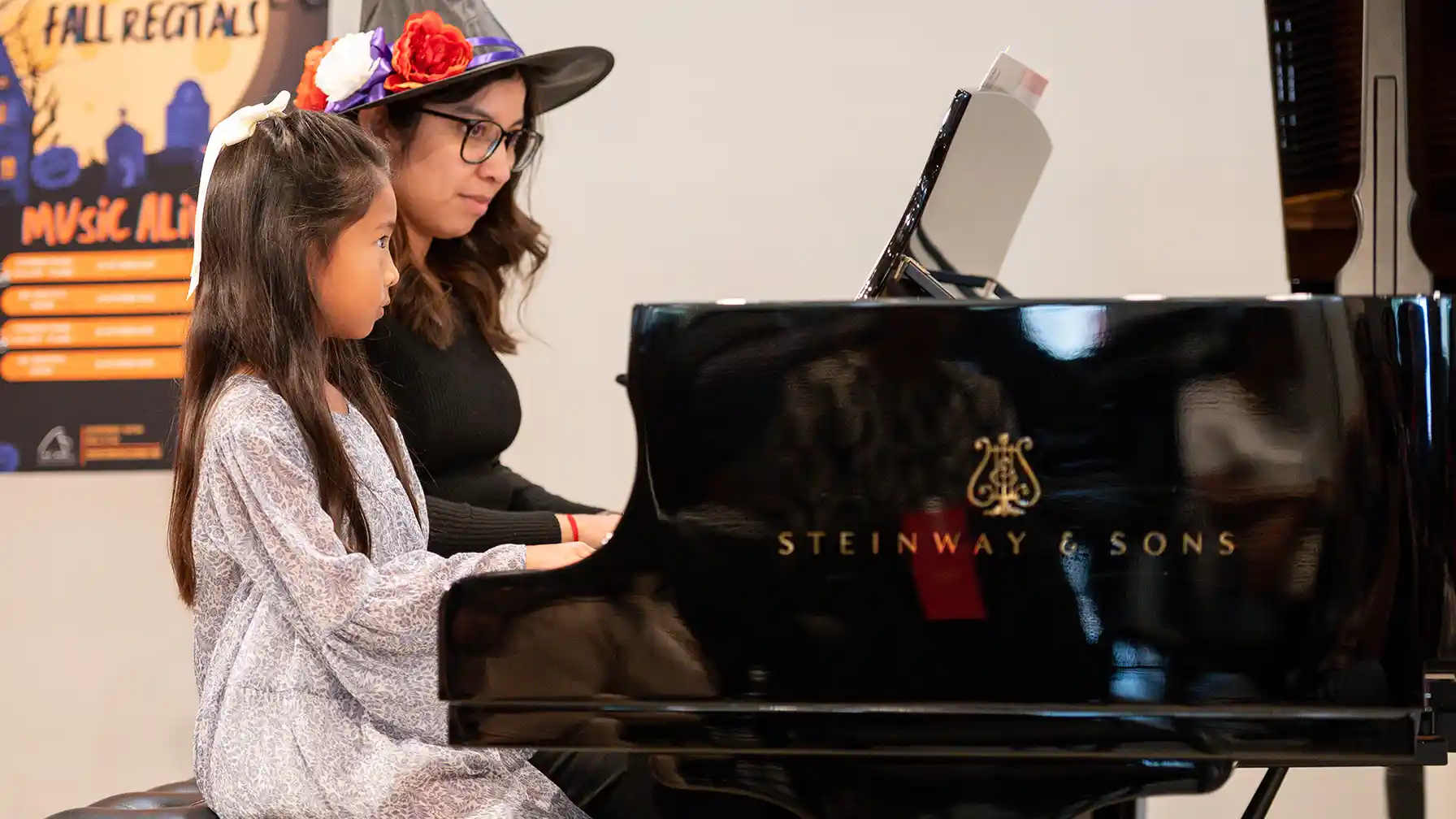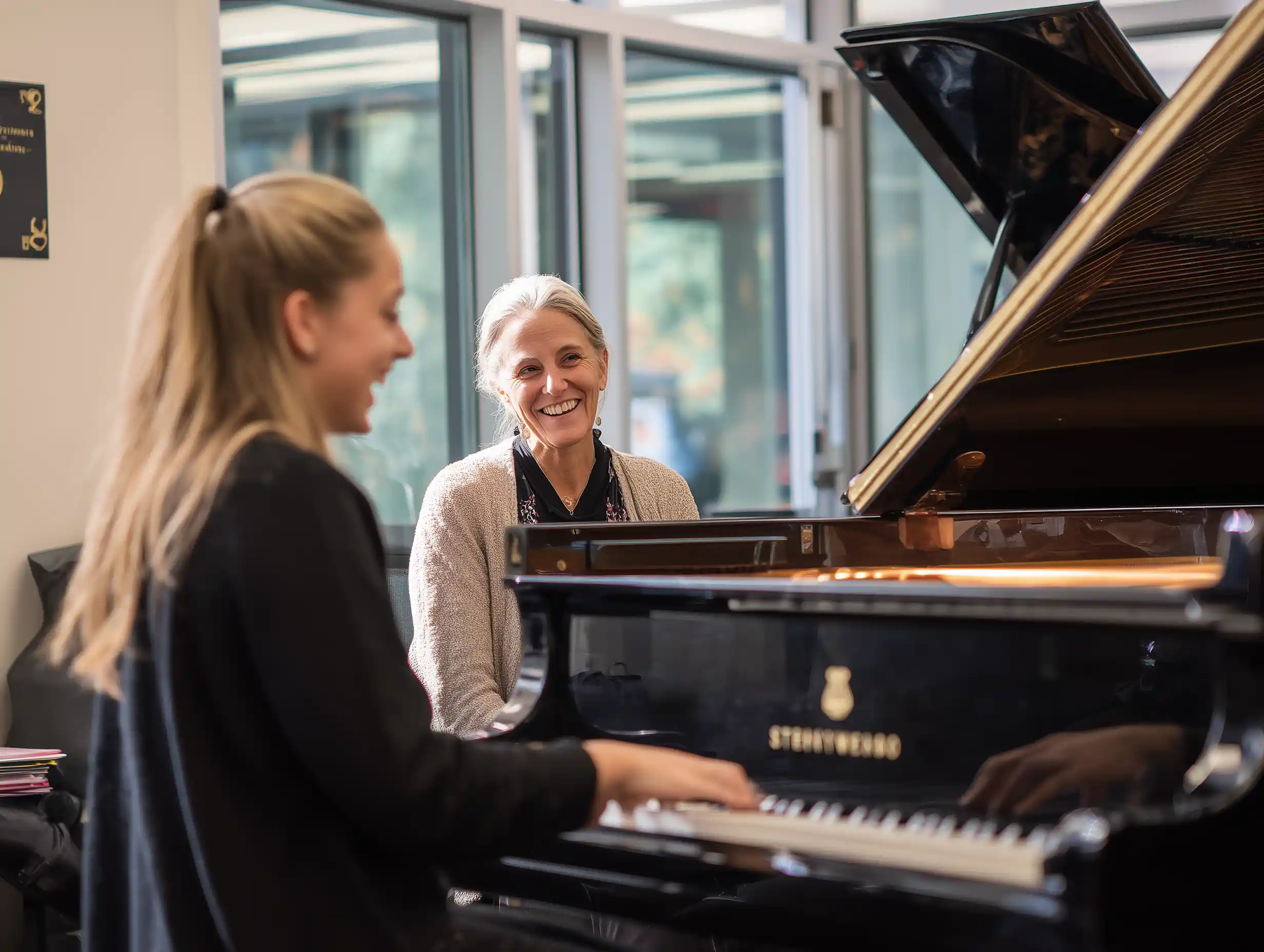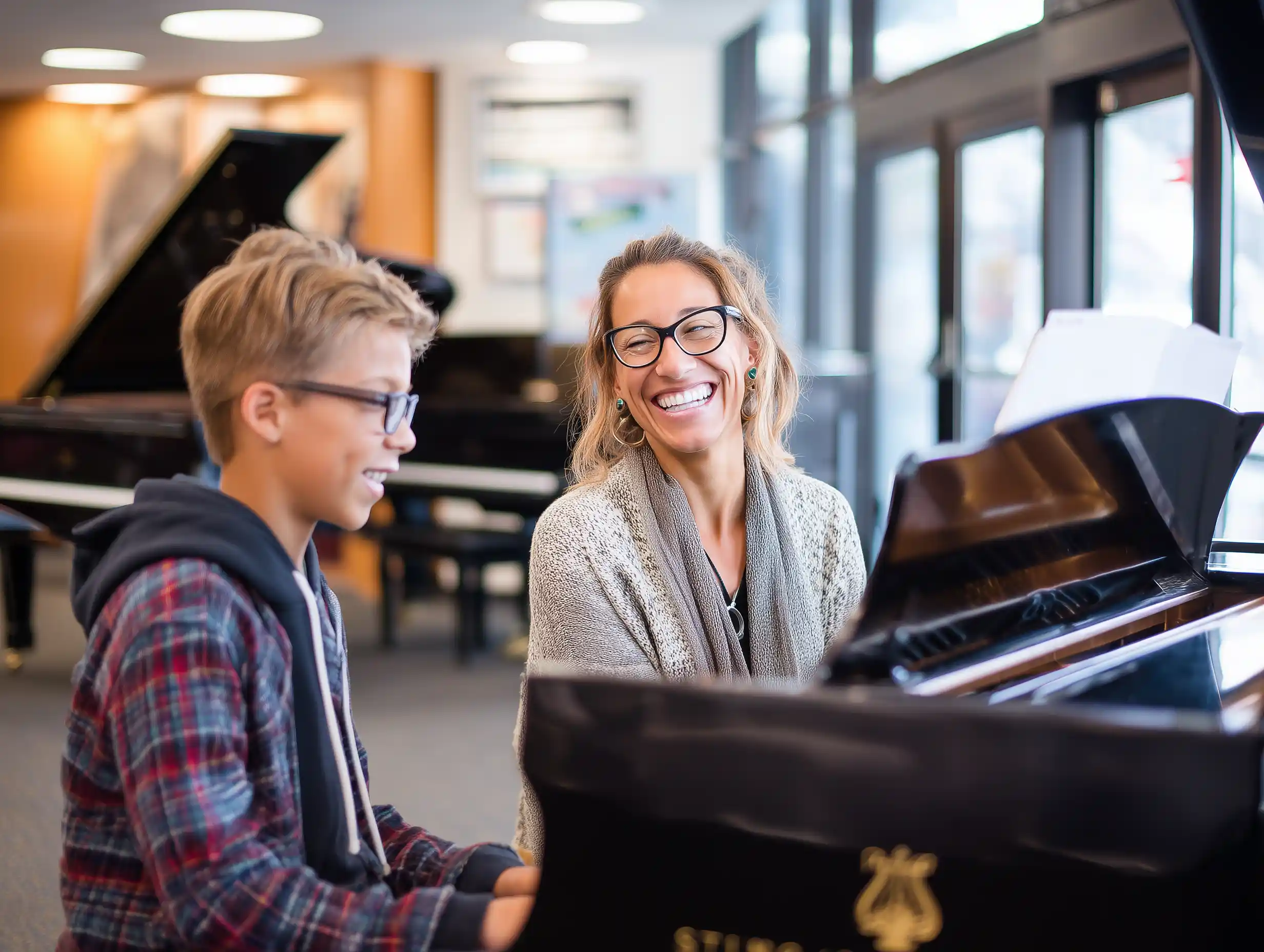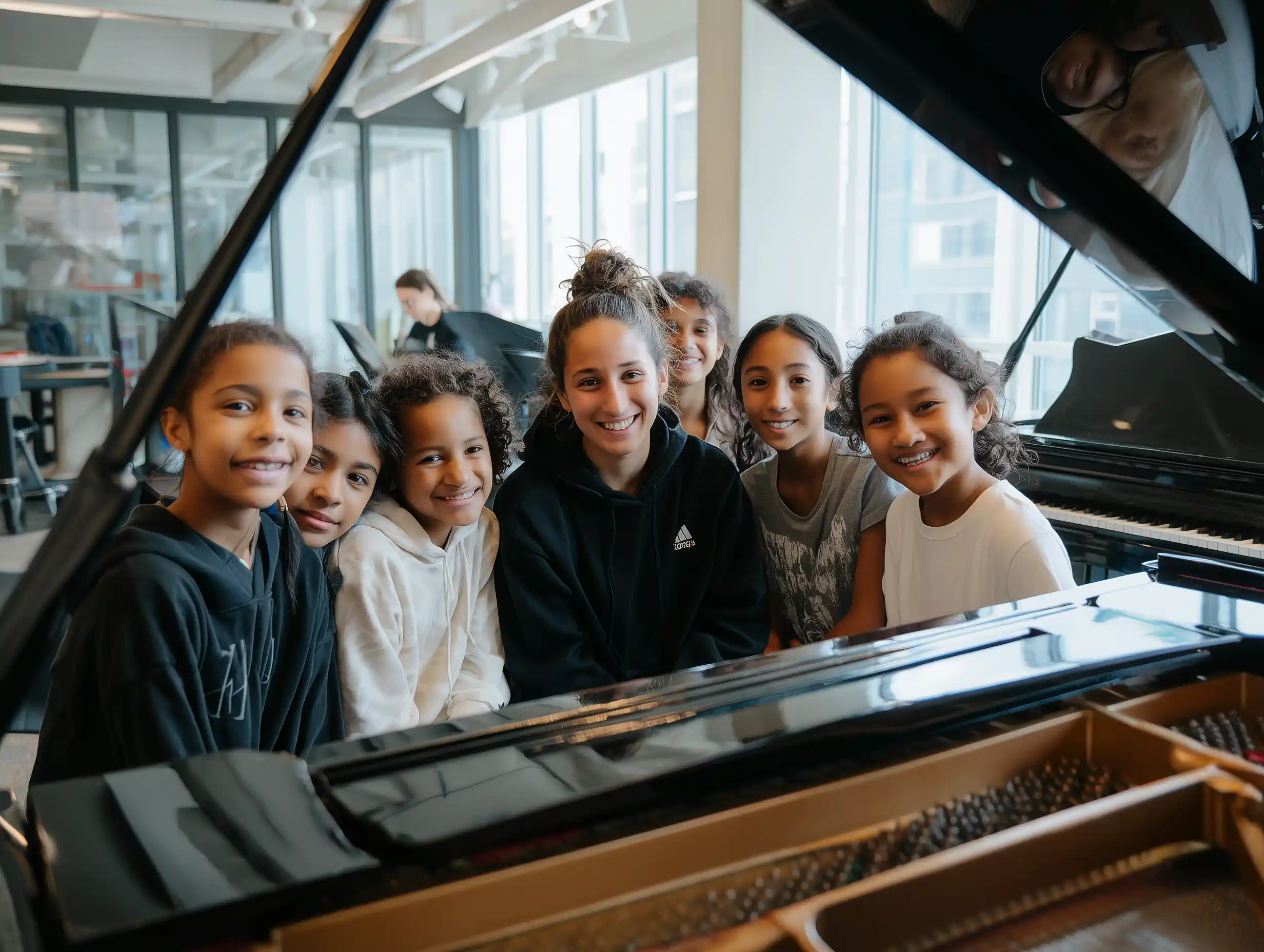Nurturing Musical Habits: A Parent’s Guide to Inspiring Piano Practice at Home

Your child’s piano motivation grows at home — not just in lessons. The space, routine, and support you create shape their progress and joy.
Here are 6 simple ways to build an environment that inspires focus, consistency, and pride.
1. Set the Stage for Focus
Your environment shapes motivation — especially for piano practice. A bright, clean, organized space invites your child to play, while clutter and dim lighting can make practice feel like a chore.
Try these simple fixes:
- Keep the piano surface clear — no mail, books, or decorations.
- Add warm lighting with a small lamp for focus and comfort.
- Choose a balanced location — quiet but connected to family life, showing music is valued at home.
2. Check the Setup: Comfort Supports Concentration
Posture and comfort matter more than most parents realize. A properly adjusted bench helps your child play with ease and prevents fatigue or tension.
- Forearms parallel to the floor when seated
- Wrists relaxed — not bent up or down
- Use a firm cushion or folded blanket if the bench isn’t adjustable
- Add a footstool for younger students so their legs don’t dangle!
When students feel physically comfortable, they’re able to concentrate longer, play with better technique, and enjoy practice more.
3. Keep Everything Within Reach
A smooth practice starts with preparation: keep books, notebooks, pencils, and recordings right next to the piano—not scattered around the house. Use a basket or small drawer to stay organized. When everything’s in one place, your child can start right away, saving time, building habits, and keeping practice stress-free.
4. Schedule Practice Like Schoolwork
Consistency beats length when it comes to progress. Rather than waiting for a “free moment,” schedule piano practice into your child’s daily routine — just like homework or bedtime. Even 10–20 minutes a day can make a big difference when it happens regularly. You might:
- Add practice time to your family calendar or chore chart.
- Tie it to an existing habit — for example, right after school or before dinner.
- Treat it as a “non-negotiable” part of the day, not something optional.
When practice becomes part of your family rhythm, it helps your child build discipline and ownership — important life skills that go far beyond music.
5. Be Their Audience — Even for a Few Minutes
Your encouragement is the secret ingredient to long-term motivation. You don’t need to be a musician to support your child’s growth — you just need to show interest.
Try sitting with them for a few minutes during practice or asking questions like:
- “Can you show me the part you worked on today?”
- “What’s the trickiest spot in your piece?”
- “That sounded so smooth! How long did it take you to get it like that?”
These small moments make a big difference. When a child feels seen and celebrated, practice transforms from a solitary task into something meaningful and rewarding. Even short “mini performances” at home can boost their confidence before recitals and teach them to take pride in their hard work.
6. Build Habits, Not Pressure
Ultimately, the goal isn’t perfection — it’s consistency, joy, and progress. By setting up a bright and organized space, keeping materials close, scheduling regular practice, and offering genuine encouragement, you’re giving your child everything they need to thrive musically. Small changes at home can create an environment where music feels natural — not forced.
With structure, comfort, and support, your child will not only play better but also develop a lifelong love for the piano.

















